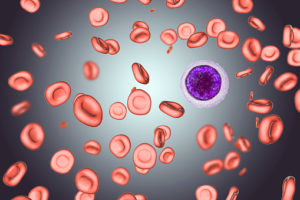Warm autoimmune hemolytic anemia (WAHA) affects 1 to 3 per 100,000 individuals per year and is the most common type of autoimmune hemolytic anemia. Autoantibodies (usually IgG which lack specificity) bind RBCs and are recognized by splenic macrophages at temperatures equal to or greater than body temperature. T cells and complement activation may also destroy RBCs in some cases. WAHA is often a chronic and relapsing condition characterized by anemia, reticulocytosis, hemolysis, and a positive direct antiglobulin test (Coombs’ test). Current guidelines based mainly on expert opinion, recommend treating patients with glucocorticoids plus rituximab. Even though the patient’s autoantibodies recognize and target all RBCs, the benefits of ABO- and RhD-matched transfusion outweigh the risks when a patient’s hemoglobin level is below 6 g per deciliter. Randomized, controlled trials are needed to determine the best combination of treatments and compare new therapies for WAHA.

